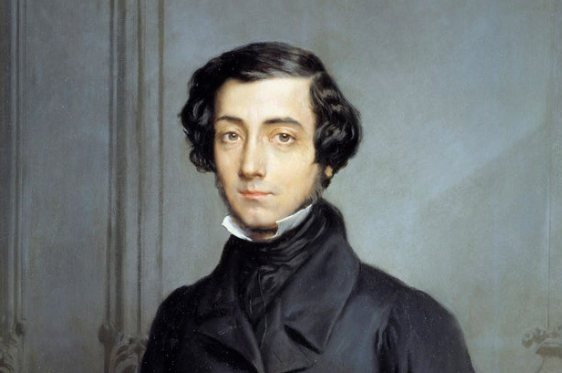Alexis de Tocqueville’s Encounter with a Rising Industrial Power: Detroit, 1831
From America’s call for a free press to its embrace of the capitalist system, Democracy in America–first published in 1835–enlightens, entertains, and endures as a brilliant study of our national government and character. Philosopher John Stuart Mill called it “among the most remarkable productions of our time.” Woodrow Wilson wrote that de Tocqueville’s ability to illuminate the actual workings of American democracy was “possibly without rival.”
For today’s readers, de Tocqueville’s concern about the effect of majority rule on the rights of individuals remains deeply meaningful. His shrewd observations about the “almost royal prerogatives” of the president and the need for virtue in elected officials are particularly prophetic. His profound insights into the great rewards and responsibilities of democratic government are words every American needs to read, contemplate, and remember.
From America’s call for a free press to its embrace of the capitalist system, Democracy in America enlightens, entertains, and endures as a brilliant study of our national government and character. De Toqueville’s concern about the effect of majority rule on the rights of individuals remains deeply meaningful. His insights into the great rewards and responsibilities of democratic government are words every American needs to read, contemplate, and remember.
In the early 19th century, French political thinker and historian Alexis de Tocqueville embarked on a journey across the United States to study its young democracy. During his travels, Tocqueville found himself captivated by the bustling city of Detroit in 1831. This article explores Tocqueville’s visit to Detroit, his observations of the city’s rapid industrialization, the social dynamics he encountered, and the lasting impact of his insights.
A City of Transformation When Tocqueville arrived in Detroit, he encountered a city in the midst of a profound transformation. Formerly a small trading post, Detroit was rapidly growing into an industrial powerhouse. The city’s strategic location along the Great Lakes and its proximity to natural resources made it a prime hub for trade and manufacturing. Tocqueville witnessed the rise of numerous mills, foundries, and factories, all powered by the energy of the swiftly flowing Detroit River. This transformation left a lasting impression on Tocqueville, who marveled at the city’s ability to harness the forces of industrialization.
The Spirit of Democracy in Action Tocqueville’s visit to Detroit also offered him unique insights into the workings of American democracy. He was struck by the egalitarian spirit that permeated the city, where social hierarchies seemed less rigid compared to the European societies he was familiar with. Tocqueville noted the fluidity of social relationships, where individuals from diverse backgrounds could interact and collaborate in the pursuit of economic prosperity. This democratic ethos, combined with the city’s rapid industrial growth, reinforced Tocqueville’s belief in the close relationship between democracy and economic progress.
Race and Slavery Tocqueville’s visit to Detroit also exposed him to the complex issue of race and slavery in the United States. Although Michigan had abolished slavery in 1807, Tocqueville saw the lasting effects of the institution in the form of racial discrimination and prejudice. Legacy and Influence Tocqueville’s visit to Detroit in 1831 provided him with valuable insights into the challenges and promises of American society. His observations would later shape his seminal work, “Democracy in America,” wherein he explored the dynamics of democracy and its effects on society. Tocqueville’s experiences in Detroit played a pivotal role in his analysis of the relationship between democracy, industrialization, and social equality. Today, his writings continue to be studied and referenced, highlighting the lasting impact of his encounter with a rapidly evolving Detroit.
Alexis de Tocqueville’s visit to Detroit in 1831 unveiled a city in the midst of industrialization, social transformation, and racial complexities. His observations of Detroit’s industrial might, democratic spirit, and societal challenges profoundly influenced his understanding of American society. Tocqueville’s reflections on democracy, urbanization, and the legacy of slavery continue to shape scholarly discussions and serve as a testament to the lasting significance of his encounter with the vibrant city of Detroit.


